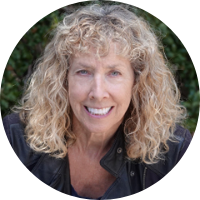
Your book on retirement is titled, Project Escape: Lessons for an Unscripted Life. From what did you seek to escape?
I named my journey of transition into retirement Project Escape because the name rang true, symbolizing what I was trying to do: move on from both structured company life that I’d been in for decades and the worn identity I had assumed through it.
What will need to occur for you to achieve your vision of an “extraordinary retirement?”
An extraordinary retirement for me needs to meet my core values, e.g. noble purpose, authentic self, adventure. The tough part for me was identifying my core values—it required me to dig deep and face truths about myself. Figuring out how to satisfy those values was the easier part since there are so many wonderful opportunities in this phase of life.
Do women and men approach retirement differently?
Yes. Studies find men to be more prone to depression as they anticipate retirement. Men often equate their careers with an identity as a “family breadwinner” making meaningful contributions to society. Losing that can lead to depression and even suicide. Unlike men, research reports women are less susceptible to depression following retirement, with the belief that their identities are less tied to their careers since they have “home and hearth” to sustain them. But I’ve seen the “Who am I?” identity crisis affect women now similarly to men as more women have long, fulfilling careers.
Also, women are more likely to engage in deeper self-analysis to figure out what they need in retirement. Facing this, they are more apt to be excited about their next act. I’m generalizing here, but men often focus more on loss (“who I used to be”) rather than moving on to a new self.
What is your advice for couples who don’t share the same vision of an ”extraordinary retirement?”
Ah, good one! I don’t think couples have to share the same vision of retirement. What I’ve seen most effective is if each person works to identify their core values first. Then they can each look at how to meet those beliefs/needs and produce endless alternatives. That way, they are more likely to get a match. If they focus on activities out of the gate, one person might say, “I want to travel,” while the other one says, “I hate to travel, I want to do nature photography”—and it looks like they have nothing in common. But if they both identify a core value of curiosity for example, they can find a full range of alternatives to satisfy that yearning in both of them.
In your book, you related a story about your grandfather, who suffered an acute loss of self-identity when he retired at 65, essentially taking the life out of him. How did he fare after that initial shock?
For months he got up every morning, dressed as if going to work in a suit that showed him as the leader he used to be, and sat on the couch in the living room staring into space. Then he started wandering down to the docks in Seattle where he lived and dreamed about boats. Finally, he bought his own small boat. He learned all things nautical, and that challenge, along with the fresh air blowing in his thinning hair, seemed to bring him satisfaction. He donned a captain’s hat as if to signal he had found a new identity to replace the one he lost.
You wrote that your employer strongly encouraged you to retire at 65 - and you ultimately left your job upon turning 66. People are living longer. In light of this, do you think the U.S. corporate world needs to rethink the benefits to their companies, and their workers, of providing flexibility that permits people to keep working beyond a seemingly arbitrarily fixed retirement age?
Absolutely. It’s actually illegal to force someone to retire at 65 (except for CEOs and their direct reports) but our culture perpetuates it. Overt conversations, “When are you going to retire?” and other messages like being passed over for promotion signal that your time is done. Older, experienced workers have a great deal to offer companies. Companies should develop ways to utilize these people in leadership, training, and mentorship roles.
“What do I do now?” Is that the central question that petrifies and paralyzes some people as they transition from the working world to retirement? Or is it something else?
Basically yes. And our culture reinforces that. The most common question we ask those of us who are retiring is, “What are you going to do in retirement?” It puts us on the spot, feeling like we have to produce a list of activities. It stems from the questions we get all our lives, “What are you going to do when you grow up?” as children and “What do you do?” we get as adults. So we are trained to believe we should be DOING something. To stop the paralyzing implications of “What are you going to do?,” I propose we retirees answer it with “Well, one thing that is important to me is… (core value). So I’m (fulfilling my core value).” Example: “One thing that’s important to me is creativity, so right now I’m doing stand-up comedy.” It answers the question but doesn’t put us in such a box!
In retirement, you sought to relearn the sense of “you” that was lost during your working years. As you reflect, what was lost? And what’s changed now that you have it back?
After decades as the lone woman in male dominated industries, I faked it at work to be aggressive like the men, perfecting the foot work and throwing the punches to compete in the ring. I learned to interrupt, talk over men, and compete for money, personnel, and my place at the table. Those aren’t bad skills, but they hid many of my truer sensitivities. I knew I had a sweeter side, full of crazy fun and a desire to connect and help others. Now that I have that person back, my life is more satisfying than I ever dreamed. I’m writing and speaking about my true self, which gives me a sense of freedom and adventure I haven’t experienced since my girlhood. It’s wonderful.
What is the most important piece of advice – on any topic – that you would share with your 30-year-old self?
In my first book, Just a Girl: Growing Up Female and Ambitious, I have a chapter called “Stay and Speak Up.” It contains what I today say to younger women and what I would say to my 30-year-old self: “If you are interested in STEM areas, you must enter and remain in male-dominated fields in order for things to change. It’s hard to be one of the only women in the group, but if you can do it, resist urges to quit and keep showing up every day. And while there, speak up for yourself and for others. Do not let yourself be cowered or engage in self-blame. Stay and speak up.”

Lucinda Jackson is the author of Just a Girl: Growing Up Female and Ambitious about her struggles to succeed in the male-dominated chemical and oil and gas organizations and Project Escape: Lessons for an Unscripted Life coming out in April 2022 about the transition from career to retirement. As a PhD scientist and global corporate executive, Jackson spent almost fifty years in academia and Fortune 500 companies. She has published articles, book chapters, magazine columns, and patents and is featured on podcasts and radio. She is the founder of LJ Ventures, where she speaks and consults on energy and the environment and empowering women and scientists in the workplace and in our Next Act. Connect with Jackson or find her books at: www.lucindajackson.com.
This article has been edited for length and clarity. The opinions expressed in this article are the author's own and do not necessarily reflect the view of their employer or the American Chemical Society.












